Is Wood Recyclable? How Is It Properly Disposed Of?
-

- Last updated:
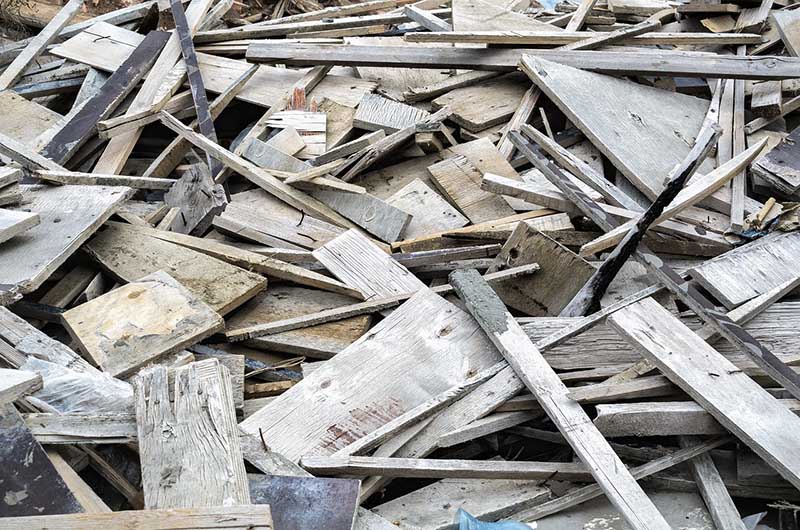
When discussing solid waste disposal, we rarely talk about how waste wood should be disposed of. Well, wood from timber mills, furniture workshops, and demolished buildings can be challenging to dispose of, mainly because most garbage collectors don’t collect vast amounts of waste wood.
Although it’s a renewable resource, conservation is critical to sustaining the available forests and the environment. Luckily, there are several sustainable ways in which wood from both commercial and residential activities can be disposed of and recycled. In this article, we’ll outline some of the best practices.

Can Wood Be Recycled?
Wood can be recycled, but the ease of recycling will depend on the quality of the wood. You can process wood waste that has been treated to make products such as compost for home gardens, sawdust, and mulch for weed and moisture control. Wooden pallets, in particular, can be repurposed into minimalist furniture.
Sometimes, wood products can be treated and used to make paper products and animal bedding. However, the most common use of recycled wood is fuel—it’s easier since the wood does not require processing and treatment to be used as fuel. Wood pellets and shavings, for example, can be used in wood stoves in their current condition.
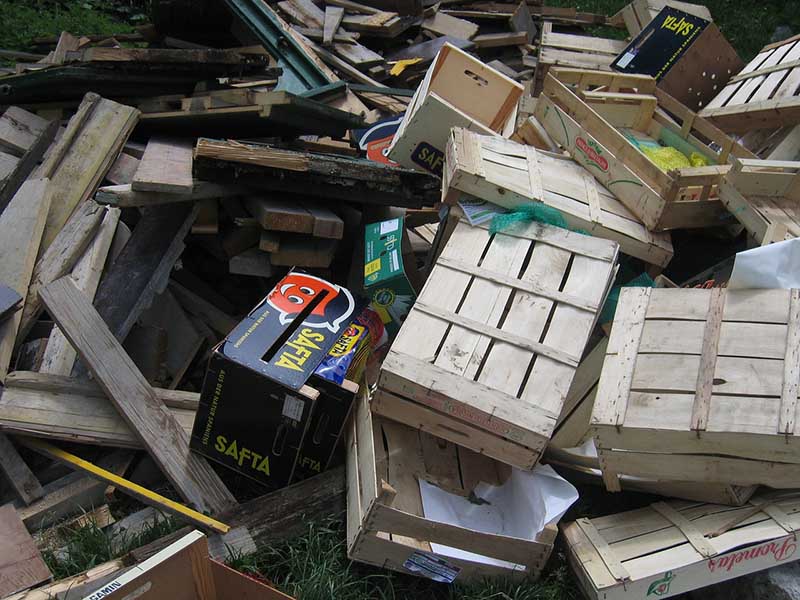
Why Should You Recycle Wood?
Roughly 4.6 million tons of wood waste is generated annually in the UK from construction, demolition, furniture making, and households. Although trees can be grown to take the place of the ones cut to make wood products, this is a staggering amount, and the waste needs to be managed sustainably.
Recycling and reusing wood have several benefits. They include the following:
1. Reduces Landfill
Landfills pose a risk to the natural environment and can contaminate the air, soil, and water resources. The more wood is recycled each year, the less there is in the landfills. Doing this also reduces the damage landfills cause, and the wood also gets a new purpose.
2. Saves Forests
Trees take a long time to grow and reach maturity—especially hardwoods, which might take more than 50 years to mature. Replanting trees is thus not sustainable in the long run. Recycling wood ensures that fewer trees need to be felled, which helps conserve the forests. It also contributes to healthy oxygen levels in the environment and a healthy forest ecosystem.
3. Fire Risk
Large piles of wood waste are a potential fire hazard since wood is highly flammable. Wood waste should be properly disposed of or recycled to reduce the chances of this happening.
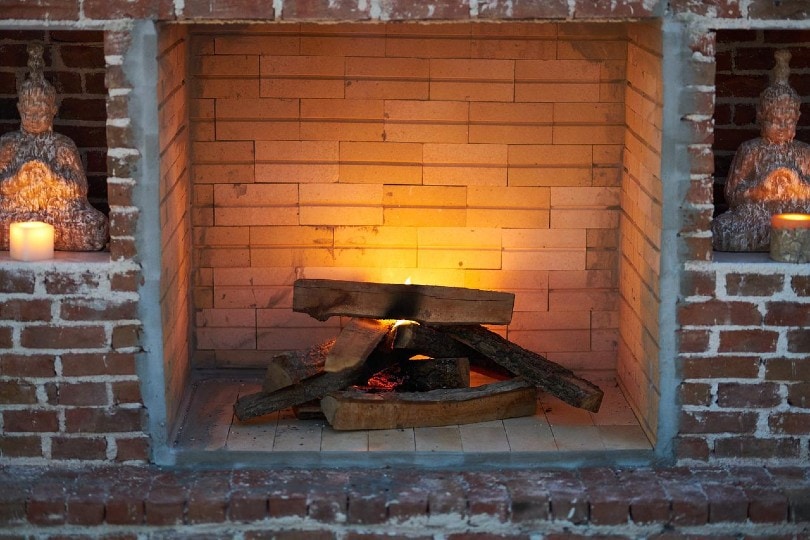
4. Reduce Costs of Processing Virgin Wood
It’s easier and cheaper to make products from recycled wood since it requires less treatment than virgin wood. Virgin wood materials need more energy to extract and process, whereas recycled wood has already undergone these processes. For example, making paper from recycled wood uses less energy than making it from virgin, unprocessed wood fibers. This also reduces the cost of the end product.

Safe Wood Disposal
Some wood waste can be hazardous, especially wood from commercial and industrial applications that treat it with harsh chemicals. The chemicals help prevent the wood from insect attacks and fungal decay. Reusing this wood as fuel can cause adverse effects on the environment and respiratory diseases if the smoke is inhaled. In such cases, the wood has to be disposed of carefully.
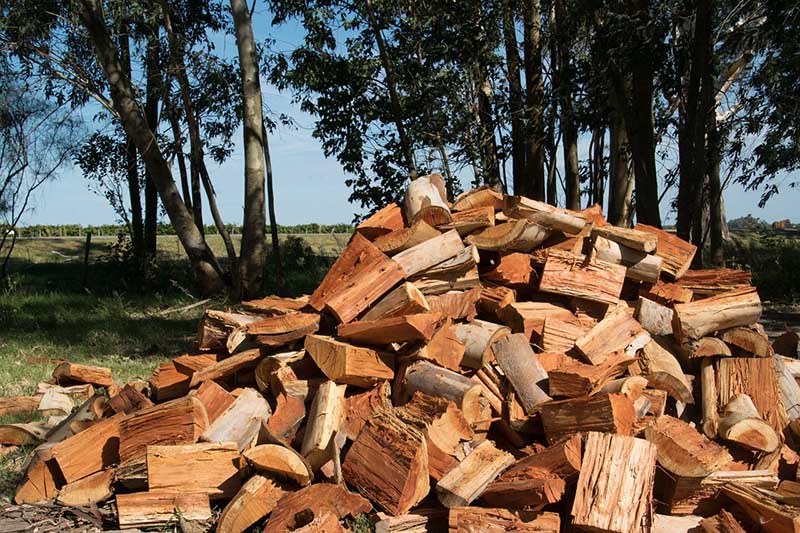
The first step when dealing with waste wood is determining whether it’s treated. Treated wood is generally easier to recognize since it’s often darker in color and will emit a chemical odor. Wood that has been pressure-treated tends to have a characteristic greenish color. Some safe disposal methods for treated wood include:
1. Wood Processing Facilities
The construction industry produces a lot of wood waste, and businesses can use this to their advantage by selling it to wood processing facilities. Some wood waste processors don’t charge for wood disposal. It’s also cheaper and more environmentally friendly to use wood processing facilities instead of disposing of the wood waste in a landfill.
2. Producing Biomass
Another excellent option for disposing of wood is turning it into biomass energy. You can send your wood waste to a biomass producer or have them collect it. They can then generate energy from the wood to power machines and provide home electricity and gas. Although all fuel combustion results in emissions, biogas is more environmentally friendly than charcoal and fossil fuels.
3. Reuse
Wood can be easily reused in several ways. Consider making wood mulch to use in your vegetable garden and reusing old wooden posts in your landscaping projects. Treated wood is particularly well-suited for re-use and can be used to build fences, barriers, and rustic tables.
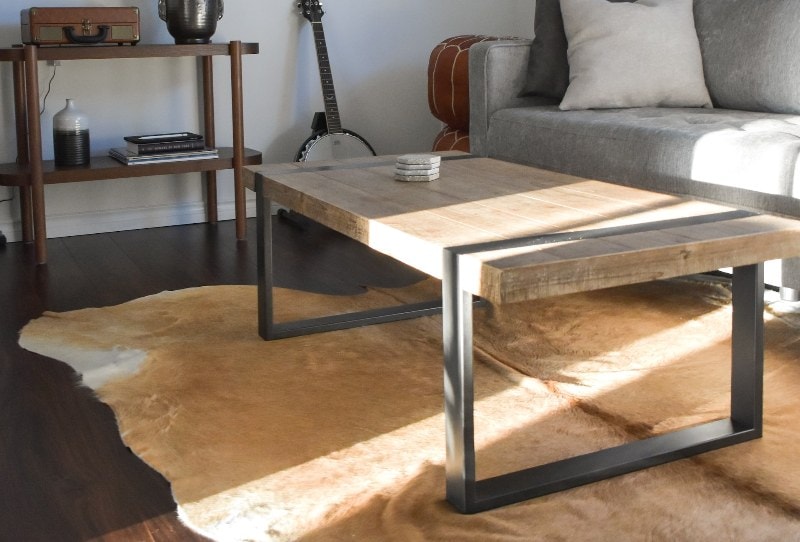
4. Landfills
Sending waste wood to landfills should be the last option and should only be done if the other options are not viable. The landfill should be able to handle wood waste with the least effect on the environment.

Frequently Asked Questions
How is wood recycled?
When waste wood is collected, it’s separated into categories depending on the treatment method and taken to the wood recycling facility. There it’s sorted and graded again on a scale of A to D, A being the best and D the most harmful. It’s then treated further and taken elsewhere to be repurposed.
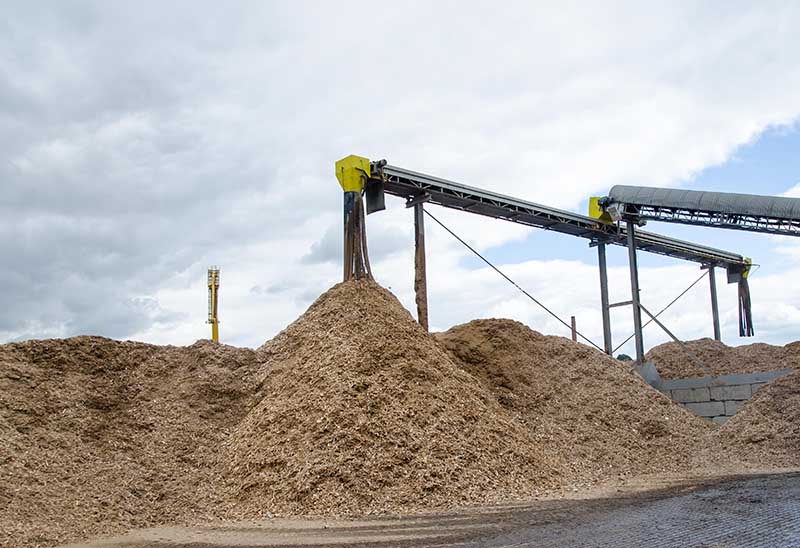
What wood is best for recycling?
Some waste wood is easier to recycle since it requires less treatment and processing. The best wood to recycle includes all softwoods, pallets, floorboards, plywood, off-cuts, hardwoods, and chipboard.
Is it okay to throw waste wood in the bin?
No, you should not throw waste wood generated in your household in the bin. If you have to, ensure you get a special bin for handling the waste wood. You can then call the local wood recycling company to collect it once it gets to a significant amount.

Conclusion
Wood can be recycled and certainly reused in various applications. When in doubt about how to recycle or dispose of waste wood, talk to professional wood recycling or disposal services. They will know the proper ways to dispose of the wood without polluting the environment and putting people’s health at risk.
If you don’t have a wood recycling or disposal service in your area, consider contacting companies that make wood products. Most will be eager to take the waste wood off your hands and even pay you for it. Avoid using wood for fuel if you are unsure of the source and whether it’s treated.
Featured Image Credit: Dmitriy, Pixabay
Contents
